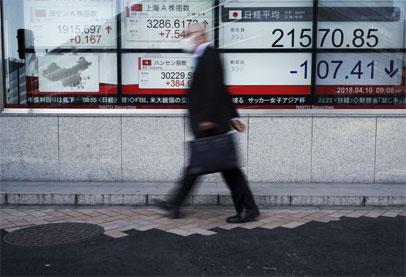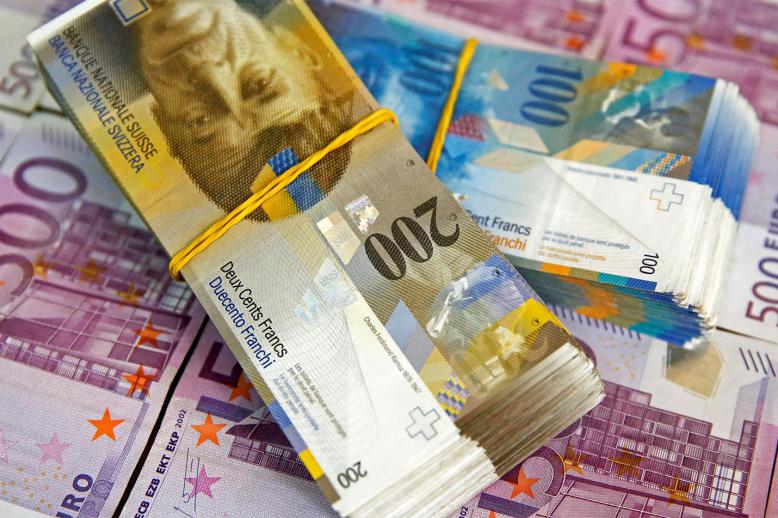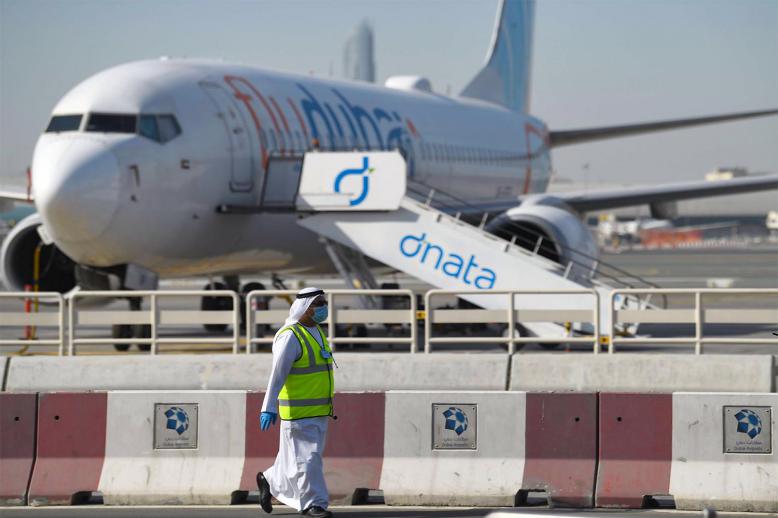Syria fears hit Asia markets
Thursday 12/04/2018

HONG KONG - Asia markets fell on Thursday as fears about a high-stakes US-Russia stand-off over Syria arrested a rally fuelled by Xi Jinping's conciliatory trade message earlier in the week.
Having enjoyed a semblance of stability this week after the Chinese president's comments soothed trade war talk, traders are now turning their attention to the Middle East.
With Western leaders trying to decide how to respond to an alleged chemical attack on a Damascus district, Donald Trump on Wednesday tweeted that "missiles will be coming", defying Russian warnings against a military strike.
Trump blames Syrian leader Bashar al-Assad and Moscow for the deadly assault that killed dozens in Douma, while his press secretary added that with regards to military action "all options are on the table".
Russia's ambassador to Beirut warned any US missiles would be shot down "as well as the sources they were fired from".
Adding to the geopolitical crisis was news that Saudi Arabia had shot down ballistic missiles fired from rebel-held Yemen at Riyadh.
The latest developments hit US markets, with all three main indexes ending sharply down, while oil prices shot up on fears about supplies in the crude-rich region, hitting levels not seen since late 2014 and boosting energy firms.
"The oil markets are very much linked to geopolitical tensions, especially if they're in the Middle East, the heart of global oil exports," Fatih Birol, executive director of the International Energy Agency, told Bloomberg Television.
"If tensions continue, they will continue to have an impact on the oil market and prices. Definitely, this will be a reason to push the prices up."
- 'Limited' impact -
Nervousness mixed with profit-taking in Asia as traders cashed in recent gains.
Tokyo lost 0.1 percent, Hong Kong eased 0.8 percent and Shanghai slipped 0.9 percent. Sydney fell 0.2 percent and Singapore shed 0.3 percent, while Seoul, Wellington, Taipei and Jakarta were also lower.
However, while investors are anxiously watching events in Syria, Kengo Suzuki and other strategists at Mizuho Securities were less concerned.
"Stock markets are unlikely to react massively because its negative impact on corporate earnings would be limited -- it would rather be positive for the military industry," they said in a joint commentary.
"Chances are that this problem could move markets only temporarily, considering it is unlikely to develop into a major 'war'."
Hong Kong's dollar fell to 7.85 per US dollar, its lowest level in 13 years, breaking the lowest point of its trading band as it is pressured by rising US interest rates.
While it is required to step in to support the local unit, the Hong Kong Monetary Authority -- the city's de facto central bank -- said buying would not automatically be triggered if other banks were buying it.
Expectations the Federal Reserve will continue to lift rates this year were fanned by data showing US inflation picking up, while minutes from its March meeting indicated a more hawkish outlook for the world's top economy.
In early European trade London fell 0.1 percent, while Paris and Frankfurt each rose 0.1 percent.




